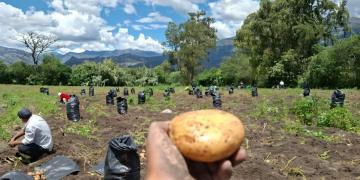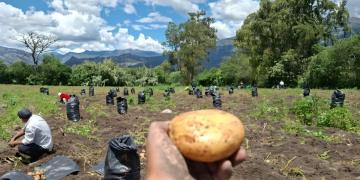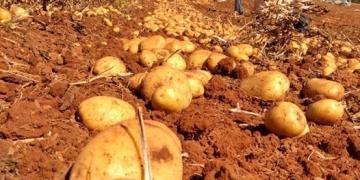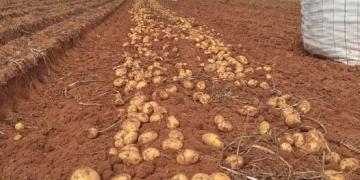Potato crisis in Russia and Belarus: What this means for Putin and Lukashenko
Alexander Lukashenko recently addressed his people with a very down-to-earth appeal.
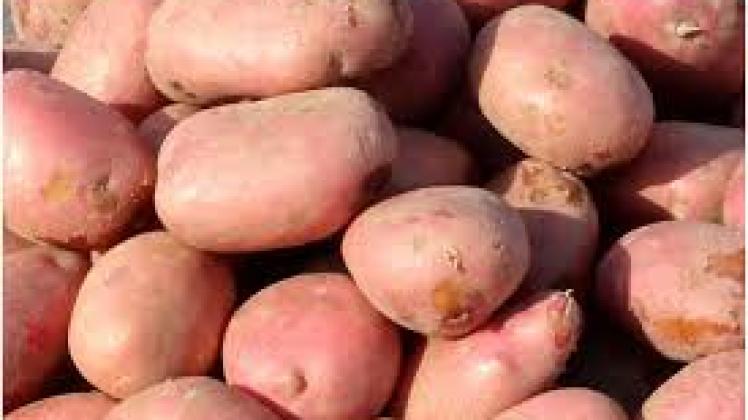
Invitó a todos los ciudadanos a plantar patatas: "Hemos cultivado más patatas. Y también aconsejo a quienes aún no las cultivan que lo hagan", declaró el presidente de Bielorrusia en una reunión con funcionarios regionales.
"Aún hay tiempo, aún hay semilla. Esto debe quedar claro para todos", enfatizó. Su llamado recordaba al del presidente estadounidense Donald Trump para extraer el máximo petróleo posible: "¡Perfora, perfora!".
¿Qué ha pasado? ¡Las patatas se están agotando en Bielorrusia debido a las malas cosechas! Las heladas han hecho su trabajo sucio y han dañado las plantas, se quejó el jefe de Estado.
Ahora bien, no es cierto que el pueblo bielorruso corra peligro de hambruna por ello. Lukashenko enfatizó que, por lo demás, la situación de la agricultura bielorrusa no es crítica. Sin embargo, la papa es un alimento básico en Bielorrusia y tradicionalmente tiene un gran valor en la gastronomía del país.
Las patatas son ingredientes esenciales en platos tradicionales como los "draniki" (tortitas de patata), la "kasha" (gachas de cereales y patatas), los "kalduni" (empanadillas de patata) y otras especialidades regionales. Cuando escasean las patatas, la gente lo percibe como una gran molestia.
“Esto es escalofriante para Bielorrusia”
Y llevan semanas quejándose en consecuencia. Una mujer bielorrusa expresó su descontento en TikTok tras comprar patatas podridas envasadas en una bolsa amarilla: "Hoy en día se pueden encontrar patatas así en las tiendas", dice en el vídeo. "Envueltas en bolsas opacas, el comprador no puede ver qué patatas nos venden. Esto es indignante para Bielorrusia, e incluso vergonzoso". Las patatas eran "muy pequeñas y estaban podridas". "Tuve que tirar la mitad".
También en Rusia las patatas tienen una larga tradición gracias a su versatilidad y son un ingrediente imprescindible en muchos platos clásicos como los “vareniki” (raviolis rusos), el “sharkoye” (gulash de patatas) o la “ensalada Olivier”.
Probablemente por eso el homólogo de Lukashenko, Vladimir Putin, se sintió melancólico por el mismo tema. Rusia también sufre actualmente una escasez de patatas debido a las heladas tardías inusualmente severas de mayo de 2024, algo que el presidente admitió la semana pasada en una reunión con representantes empresariales y agrícolas, recordando a su padre. Su padre le había enseñado a cultivar patatas: «Bueno, no es tarea fácil», dijo Putin, «plantar estas patatas y luego arrancar las malas hierbas».
La cuota de patata de Europa occidental está cancelada desde 2014
Putin y Lukashenko también habían mantenido contactos sobre el tema de las patatas: a principios de la semana pasada, el presidente ruso fue informado por su homólogo bielorruso de que el país vecino no podía exportar más patatas a Rusia debido a su propia escasez.
Putin therefore expressed disappointment at the meeting with business representatives, which was broadcast on state television. The export of Belarusian food products to Russia, which enjoys a very good reputation there, has a long tradition. With 100,000 to 200,000 tons in 2023 and 2024, Belarus was by far the largest exporter of potatoes to Russia.
To somewhat offset the shortage, Russia began importing potatoes from Egypt, Turkey, Israel, and Pakistan earlier than usual, starting in January 2025. Together, these countries have exported 141,000 tons of potatoes to Russia so far this year.
Before the annexation of Crimea in 2014, Western European countries such as France, the Netherlands, Germany, and Poland collectively supplied Russia with between one and one and a half million tons. However, this quota has now been eliminated. While food exports are generally exempt from EU sanctions against Russia, Moscow responded to the EU’s food sanctions in 2014 with counter-sanctions, banning Russia from importing food products from the EU. This also applies to potatoes.
Potatoes in Russia were previously extremely cheap
The loss of potato imports and the shrunken domestic harvest, which, at 7.3 million tons in 2024, was 11.9 percent lower than in 2023, led to a steep increase in potato prices in Russia of 92 percent compared to the previous year. In percentage terms, this seems high, but it is also due to the fact that potatoes were previously unusually cheap in Russia. Their price fell by 15.8 percent and 31.5 percent in 2023 and 2022, respectively.
But last year’s inflation has recently risen sharply again: While in December 2024 a kilo of potatoes cost 56.9 rubles (65 euro cents), it now costs 91.8 rubles (104.8 euro cents) - an increase of a further 61 percent.
However, voices in Russia reject the idea of explaining this development solely by unfavorable weather and unusually late frost: the shortage of potatoes and the resulting price increase were also caused by insufficient storage capacity for field crops in Russia, said Yelena Tyurina of the "Rossiskij Sernovoj Soyuz" (Russian Grain Union).
"Modern technologies make it possible to store vegetables until the next year, that is, until the new harvest (Editor’s note: potatoes are harvested from August to October)," Tyurina said, "but there are few such storage facilities in the Russian Federation."
Where you can still get potatoes at old prices
However, a price per kilo of potatoes equivalent to about one euro isn’t killing people in Russia. While they’re feeling the effects of general price inflation of about ten percent, real wages have also risen by the same amount.
But because of the symbolic significance of the potato for Russian cuisine, there is now a lively debate among the Russian public about where potatoes can still be found at reasonable prices: "Despite the general rise in prices, you can still find offers on the shelves at old prices," writes the St. Petersburg regional portal "Fontanka.ru."
In various supermarkets, Russians can buy potatoes for between 9.99 rubles (11 cents) and 110 to 130 rubles (1.21 to 1.43 euros) per kilo. However, there are doubts about the quality, especially with these cheaper products.
Anyone who chooses the cheap offer from the supermarket “Narodnij No. 1” for 9.99 rubles per kilo should not be surprised if they end up like the Belarusian woman who complained on TikTok about the rotten potatoes that were slipped into an opaque bag.
High quality, high prices
The "Narodniy No. 1" chain, along with "Chishik" and "Svetofor," represents the lowest price segment in the Russian supermarket landscape. The "Diksi" chain, with its densely packed stores, is only slightly higher. It’s therefore not surprising that the cheapest, but also lowest-quality potatoes can be found at "Narodniy No. 1" and "Diksi."
"Pjaterochka," "Perekryostok," and "Magnolia" represent mid-range prices and quality food in Russia, while the hypermarkets of the French "Auchan" chain and the German retailer "Globus" often offer high quality at reasonable prices. At Globus, for example, unwashed and perfectly edible potatoes are currently available for 79.99 rubles (88.4 euro cents). However, "Auchan" and "Globus" are not available on every corner, unlike the numerous "Perekryostok" and "Pjaterochka" branches, which are spread across large cities and rural areas in metropolises like Moscow and St. Petersburg, and throughout Russia.
The highest quality in Russia is offered by the branches of the "Azbuka Vkusa" ("Alphabet of Taste") chain in Moscow and St. Petersburg, which, in terms of quality, rank close to Feinkost Käfer, Frische Paradies, or Rogacki in Germany. The quality at "Azbuka Vkusa" is always good, but the prices are above average. Potatoes from the chain currently cost between 238 and 348 rubles per kilo—two to three times the already significantly increased price.
Fuente: msn.com

